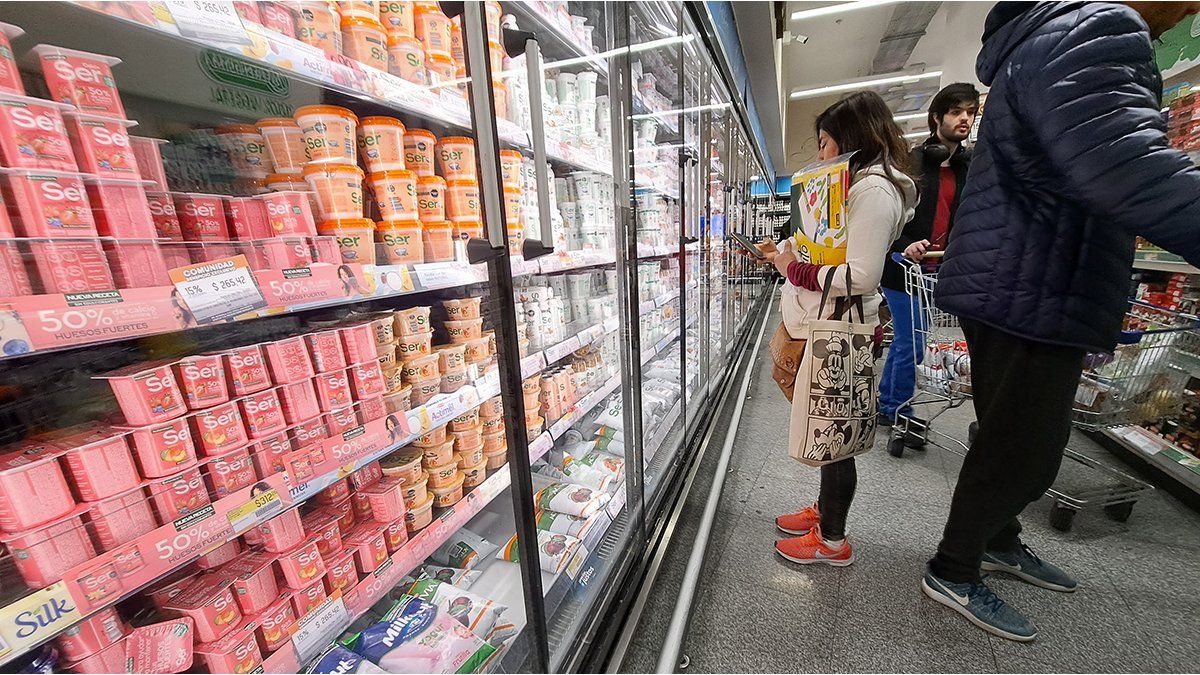Due to a lower impact than expected of the devaluation during September and October, added to the effect “advance of consumption” in a context of high inflation and marked uncertaintyand hand in hand with the different measures adopted by the Government, economic activity would contract at a lower level than expected.
This was predicted by a private consulting firm, that improved its projections for this year and that, if agriculture is excluded, the activity would present a growth close to 1% on the average of 2023. Private consumption, which would also present an increase close to that percentage, would explain part of the improvement.
A study of Ecolatina analyzed the performance of the economy and highlighted that The impact of the drought in terms of activity was “considerably less than expected”. “The direct effects of the climate phenomenon on the agricultural sector were of magnitude (in fact, agriculture showed even more pronounced falls than those of 2009), but were not strongly transferred to the rest of the economy, except for specific effects in some associated sectorss (agricultural machinery, agrochemicals, some industrial food and beverage items, transportation),” they highlighted.
“From the perspective of domestic demand, behind this behavior we believe that an ‘act now’ effect (anticipate consumption) prevails: In an election year, with a strong inflationary acceleration, a context of high uncertainty and a restrictive exchange rate, the ‘pesos burn’ effects continued to prevail, taking into account that purchases of goods (and may also be certain services) were “They use them as a savings alternative or as ways to advance consumption,” the firm analyzed.
In this context, they estimated that even The devaluation of the official exchange rate carried out in August, “will have a less negative effect than expected on domestic demand and economic activity in general in September and October, in contrast to other periods with devaluation”. It occurs, they highlight, because consumption was used as a “protection” tool in a scenario of high instability.
This phenomenon is added to the measures adopted by the Government to try to alleviate the effects of the devaluation on purchasing power and aimed at, precisely, supporting private consumption. “However, these measures are not free either: Increases in income and the implementation of certain transfer measures to households validate inflation, which feeds back the process forward.“, they explained.
In turn, the report highlighted that “from the supply side, throughout the year, when the trade-off between reserves and activity reappeared, the Government prioritized the latter, appealing to different sources of financing to compensate for the shortfall. of foreign exchange due to the drought.”
In that sense, the study highlighted the growth in commercial debt with importers of goods and mentioned that “The other side of privileging the maintenance of activity and employment is reflected in a stock of net reserves at historic lows”.
In any case, Ecolatina once again improved the growth projection for 2023. “Behind this decision are data for July and August that are better than expected, together with a devaluation with a limited recessionary effect since it offsets the ‘act now’ effect. ‘and the Government’s measures to try to sustain consumption.’
So, The firm estimates that the economy would fall around 1.5% year-on-year on average for the year (at the beginning of October, it had already revised its previous estimate and projected a contraction of 2.2%). Furthermore, they highlighted that, without counting the agricultural sector, the activity would exhibit “a growth of somewhat less than 1% y/y in the same period.” “In addition, this scenario is accompanied by private consumption that will show growth of around 1% yoy on average for the year,” the study concluded.
Projections
According to the latest official data, The economy grew in August for the second consecutive month in the seasonally adjusted variation (1.3% compared to July) and improved 0.3% in the interannual comparison. According to some private estimates, it would have been sustained in September.
For example, as indicated by the General Activity Index of Orlando Ferreresactivity grew 0.2% year-on-year in the ninth month of the year, although it contracted 0.2% in the seasonally adjusted measurement. “However, we see great differences in the situation of the different sectors: on the one hand, activity in mines and quarries continues to lead the economic march, and commercial activity was the second sector with the greatest positive impact in September. At the other end, agricultural activity, industry, and construction show the lowest results,” the firm analyzed, and projected that “in the coming months we expect to see a greater economic decline, the magnitude of which will depend on the more or less less orderly in which the transition of political power is made.”
Along the same lines, ACM estimated: “Towards the end of the year, we expect the economy to continue contracting, mainly due to political as well as economic uncertainty. The acceleration of inflation, the lack of foreign currency and the widening of the exchange gap will probably have a negative impact on some sectors. In summary, we anticipate an annual contraction of economic activity close to 2.9%.”
Source: Ambito




